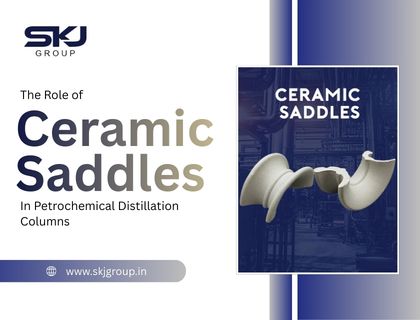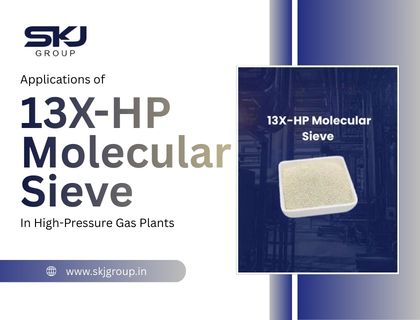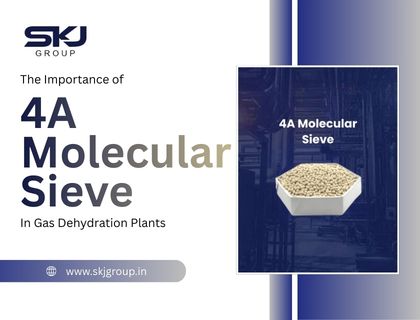Industrial Applications: Exploring Manufacturers of Ceramic Foundry Filters

Maximizing Efficiency with High-Tech Ceramic Materials
July 20, 2024
The Future of Tower Packing: Innovations and Trends in the Industry
August 11, 2024This image showcases ceramic foundry filters, essential for enhancing molten metal quality in industrial casting processes. Ceramic filters remove impurities, improve structural integrity, and ensure consistent production results. By understanding the manufacturing processes and selecting reliable suppliers, industries can optimize metal quality, reduce defects, and increase operational efficiency in foundries.
In the ever-evolving landscape of industrial manufacturing, ceramic foundry filters have emerged as crucial components in various applications. These filters, produced by specialized ceramic manufacturers, play a vital role in ensuring the quality and efficiency of metal casting processes. This article delves into the world of ceramic foundry filters, exploring their applications, manufacturing processes, and the key players in this niche industry.
The Importance of Ceramic Foundry Filters
Ceramic foundry filters are essential elements in the metal casting industry, designed to remove impurities and inclusions from molten metal before it solidifies into the final product. These filters are typically made from materials such as alumina, zirconia, or silicon carbide, which are known for their high temperature resistance and chemical inertness.
The use of ceramic foundry filters offers several advantages:
1. Improved metal quality: By removing impurities, these filters help produce cleaner, stronger, and more consistent metal castings.
2. Increased efficiency: Filtration reduces the need for post-casting treatments and machining, saving time and resources.
3. Enhanced product performance: Cleaner metal leads to improved mechanical properties and longer product lifespans.
4. Cost-effectiveness: Despite the initial investment, ceramic filters can significantly reduce overall production costs by minimizing defects and waste.
Manufacturing Process
The production of ceramic foundry filters involves several stages, each requiring specialized expertise and equipment. Ceramic manufacturing companies employ various techniques to create these filters, including:
1. Raw material preparation: High-purity ceramic powders are carefully selected and mixed to achieve the desired properties.
2. Forming: The ceramic mixture is shaped into the filter structure using methods such as extrusion, pressing, or foam replication.
3. Drying: The formed filters are dried under controlled conditions to remove moisture without causing cracks or deformations.
4. Sintering: The dried filters are fired at high temperatures in specialized kilns to achieve the final ceramic structure and properties.
5. Quality control: Rigorous testing and inspection ensure that the filters meet the required specifications for porosity, strength, and filtration efficiency.
Key Players in the Ceramic Foundry Filter Industry
Several ceramic manufacturing companies specialize in producing high-quality ceramic foundry filters. Some notable manufacturers include:
1. AGC Ceramics Co., Ltd.: A leading Japanese company known for its innovative ceramic products, including foundry filters.
2. Admatec and Formatec: These companies focus on advanced ceramic manufacturing techniques, including 3D printing of ceramic components.
3. Ceramic Drying Systems Ltd: Specializing in ceramic drying equipment, this company plays a crucial role in the filter manufacturing process.
4. Ceramic foam filter manufacturers: Several companies focus specifically on producing ceramic foam filters, which are widely used in metal casting applications.
5. Technical ceramics manufacturers: These companies produce a wide range of advanced ceramic products, including foundry filters, for various industrial applications.
Expanding Applications of Ceramic Foundry Filters
While primarily used in metal casting, ceramic foundry filters are finding applications in other industries as well. Some emerging areas include:
1. Ceramic glass manufacturers are exploring the use of ceramic filters in glass production to improve clarity and remove defects.
2. The ceramic manufacturing industry is incorporating filtration techniques in the production of advanced ceramic materials, ensuring higher purity and consistency.
3. Ceramic matrix composite manufacturing processes are benefiting from the use of specialized filters to enhance the quality of the final products.
4. Industrial ceramics products are increasingly relying on filtration technologies to meet stringent quality requirements in aerospace, automotive, and electronics applications.
Advancements in Ceramic Filter Technology
The field of ceramic foundry filters is constantly evolving, with manufacturers and researchers pushing the boundaries of what’s possible. Some recent advancements include:
1. Nanostructured ceramic filters: Utilizing nanotechnology to create filters with enhanced filtration efficiency and mechanical properties.
2. Multi-layer filters: Combining different ceramic materials and pore sizes to achieve optimal filtration performance for specific applications.
3. Smart filters: Incorporating sensors and monitoring capabilities to provide real-time data on filter performance and metal quality.
4. Eco-friendly production: Developing more sustainable manufacturing processes and exploring the use of recycled materials in filter production.
Challenges and Future Outlook
Despite the numerous advantages of ceramic foundry filters, the industry faces several challenges:
1. High production costs: The complex manufacturing process and specialized materials contribute to relatively high production costs.
2. Competition from alternative materials: Metal and polymer-based filters are competing with ceramic filters in certain applications.
3. Customization requirements: Different casting processes and alloys often require tailored filter solutions, challenging manufacturers to maintain flexibility in their production.
4. Environmental concerns: The energy-intensive nature of ceramic production has led to increased focus on developing more sustainable manufacturing processes.
Looking ahead, the ceramic foundry filter industry is poised for continued growth and innovation. As manufacturers of ceramic components and technical ceramics companies invest in research and development, we can expect to see:
1. Improved filter designs that offer higher efficiency and longer service life.
2. Integration of digital technologies for smart manufacturing and quality control.
3. Development of new ceramic materials with enhanced properties for specific applications.
4. Expansion into new markets and industries beyond traditional metal casting.
The Role of Specialized Ceramic Machining
The production of high-quality ceramic foundry filters often requires precise ceramic machining to achieve the desired shapes, sizes, and surface finishes. Ceramic machining companies play a crucial role in this process, offering services such as:
1. Grinding and polishing of filter surfaces
2. Cutting and shaping of ceramic filter elements
3. Drilling and creating intricate pore structures
4. Precision finishing for optimal filter performance
For companies seeking ceramic machining near me, it’s essential to partner with experienced providers who understand the unique challenges of working with advanced ceramic materials.
Ceramic Materials Used in Foundry Filters
Various ceramic materials are employed in the production of foundry filters, each offering specific advantages:
1. Alumina ceramic manufacturers produce filters known for their high strength and chemical resistance.
2. Zirconia manufacturers create filters with excellent thermal shock resistance and toughness.
3. Silicon nitride manufacturers offer filters with superior hardness and wear resistance.
4. Boron carbide manufacturers produce filters with exceptional hardness and abrasion resistance.
Other ceramic materials used in filter production include:
– Aluminum nitride
– Ceramic fiber
– Ceramic powder
These materials are often combined or used in specific applications to achieve optimal filtration performance.
Specialized Ceramic Products for Filtration
In addition to foundry filters, ceramic manufacturers produce a wide range of related products for filtration and fluid handling applications:
– Ceramic tube manufacturers create tubular filters for various industrial processes.
– Ceramic plate manufacturers produce flat filter elements for specific applications.
– Ceramic substrate manufacturers develop porous substrates for advanced filtration systems.
– Ceramic liners manufacturers offer protective linings for filtration equipment.
– Ceramic ball manufacturers produce media for certain types of filtration systems.
– Ceramic ferrule manufacturers create components for connecting and sealing filter assemblies.
These specialized products demonstrate the versatility of ceramics in filtration applications across various industries.
Frequently Asked Questions (FAQs)
1. Q: What are ceramic foundry filters made of?
A: Ceramic foundry filters are typically made from materials such as alumina, zirconia, or silicon carbide. At SKJ Group, we use high-purity ceramic materials to ensure optimal filtration performance.
2. Q: How do ceramic foundry filters improve metal quality?
A: Ceramic foundry filters remove impurities and inclusions from molten metal, resulting in cleaner, stronger, and more consistent metal castings. SKJ Group’s filters are designed to achieve superior filtration efficiency.
3. Q: Can ceramic foundry filters be customized for specific applications?
A: Yes, ceramic foundry filters can be tailored to meet specific requirements. SKJ Group offers customized filter solutions based on factors such as metal type, casting process, and desired filtration efficiency.
4. Q: How long do ceramic foundry filters last?
A: The lifespan of ceramic foundry filters depends on various factors, including the type of metal being filtered and the casting conditions. SKJ Group’s high-quality filters are designed for optimal durability and performance.
5. Q: Are ceramic foundry filters environmentally friendly?
A: While ceramic production can be energy-intensive, ceramic filters contribute to environmental sustainability by reducing waste and improving the efficiency of metal casting processes. SKJ Group is committed to developing more eco-friendly manufacturing techniques.
Conclusion: Embracing the Future of Ceramic Filtration
As the demand for high-quality metal castings continues to grow across industries, the importance of ceramic foundry filters cannot be overstated. These advanced ceramic components play a crucial role in ensuring the production of superior metal products while improving efficiency and reducing costs.
SKJ Group stands at the forefront of this exciting field, offering cutting-edge ceramic foundry filter solutions that meet the evolving needs of the industry. With our commitment to innovation, quality, and customer satisfaction, we are poised to shape the future of ceramic filtration technology.
Whether you’re looking for standard ceramic foundry filters or require customized solutions for your specific application, SKJ Group has the expertise and capabilities to meet your needs. Our team of skilled engineers and technicians works tirelessly to develop and produce ceramic filters that set new standards in performance and reliability.
Don’t let impurities compromise the quality of your metal castings. Partner with SKJ Group today and experience the difference that advanced ceramic foundry filters can make in your production process. Contact us now to learn more about our products and services, and take the first step towards optimizing your metal casting operations.




